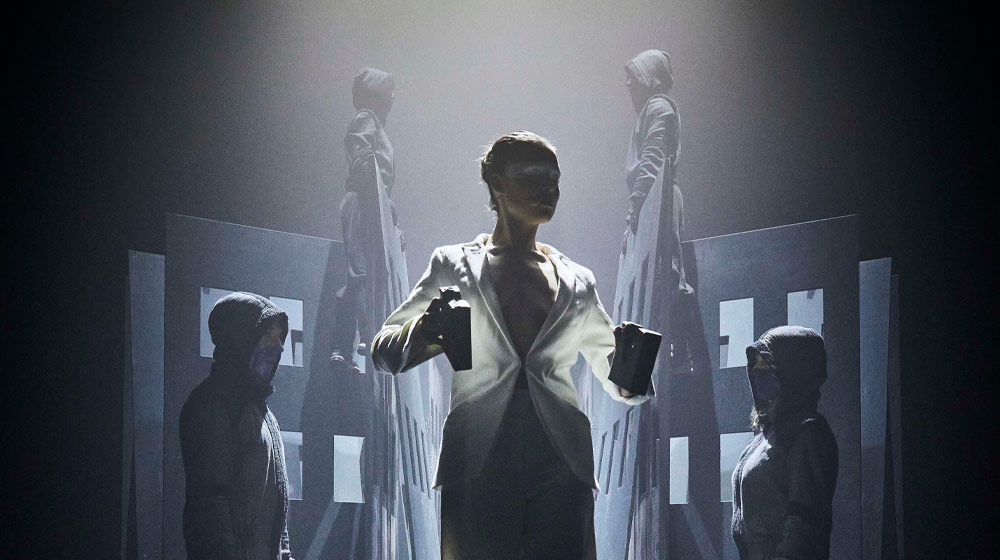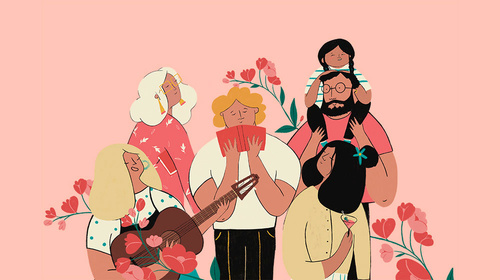«La Trilogie des Contes Immoraux (pour Europe)» by Phia Ménard
Grec 2022 — Mercat de les Flors
Friends of the CCCB
Exclusive for Friends of the CCCB
An artist willing to renew the language of contemporary theatre brings to the stage a creation that is actually a trilogy of performances. They are political stories or fables that take a look at the creation and current state of the European continent.
The origin of the trilogy, which premièred at the 2021 Avignon Festival, was the invitation Phia Ménard (head of the Compagnie Non Nova) received in 2016 to participate in the 14th Documenta de Kassel in Athens. The artist travelled to the German city and to Athens to find in one and the other the origins of a monstrous Europe, on the one hand, and a romantic reflection of a mythologised Europe, on the other. From there, she conceived a series of performances that take the form of different mythological stories or fairy tales in which she alludes to the construction and deconstruction of the European continent. The first of these performances, Maison Mère, "Mother House", shows us a goddess building Humanity's first house. You'll see her erect a cardboard building reminiscent of the Parthenon (perhaps a "Carthenon"), an edifice as precarious as the houses of the Thatcher-era working poor and that could disappear with no more than a heavy downpour. The second performance, Temple Père or "Father Temple", refers to the submission of men and women to the system, bringing an ultra-liberalism to the stage that she identifies with the patriarchy. She represents this with the symbolic erection of a large Tower of Babel, a seemingly interminable phallic construction, as part of a choreographic and architectural ritual with a hint of industrialism. Finally, the third performance, La Rencontre Interdite, something like "the forbidden encounter", takes place in a desert. It's the story of an anticipated disappearance that is both a farewell to innocence and a cry for revolution. It contains an image of transformation symbolised by Phia Ménard herself, who, completely nude, shows a body that years ago was masculine and today is feminine, alluding with her own personal experience to a Europe that rebuilds herself. The symbolic construction, destruction, and reconstruction of an entire continent on the stage makes for a daring spectacle that has its audience laughing, gripping their armrests in distress, and being swept away by sadness.



